The very first DARKER SKY project meeting recently took place in the charming city of Brest, France, and was hosted kindly by our lead partner, the Université de Bretagne Occidentale. This meeting brought together members from various project partner organisations. Over two days, we embarked on the journey that would shape the upcoming three years of DARKER SKY, marked by engaging discussions and fruitful exchanges.
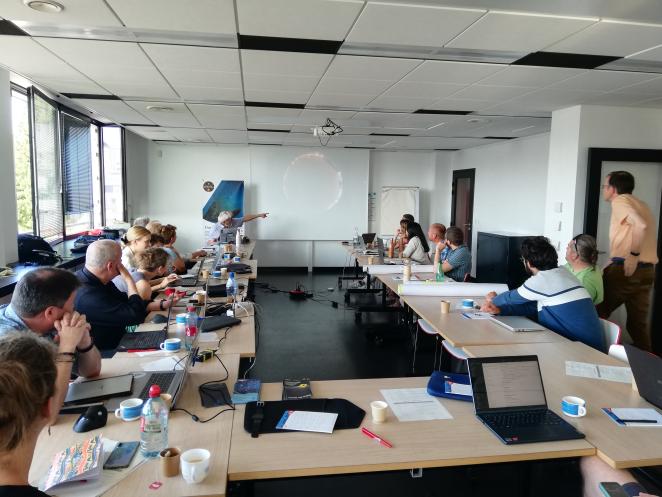
photo: Anna Vollmer
The meeting began with Sébastien Gallet, from the lead partner team at the Université de Bretagne Occidentale (UBO), extending a warm welcome to all participants at the "Maison de l'international" of the municipality of Brest Métropole. Tristan Montier, Vice-President of Research and Innovation at Université de Bretagne Occidentale, along with Glen Dissaux, Vice-President of Brest Métropole, followed. They recognised the dedication of our partners in their aim to combat light pollution and protect biodiversity, expressing gratitude for the lead partner's leadership.
To set the tone for the meeting, Enora Morin, Project Manager from UBO, introduced the agenda for the upcoming days. She provided an overview of the project consortium, work plan structure and detailed aspects of the work packages. Subsequently, a dynamic 'speed dating' session allowed all attendees to get to know each other better and to foster connections.
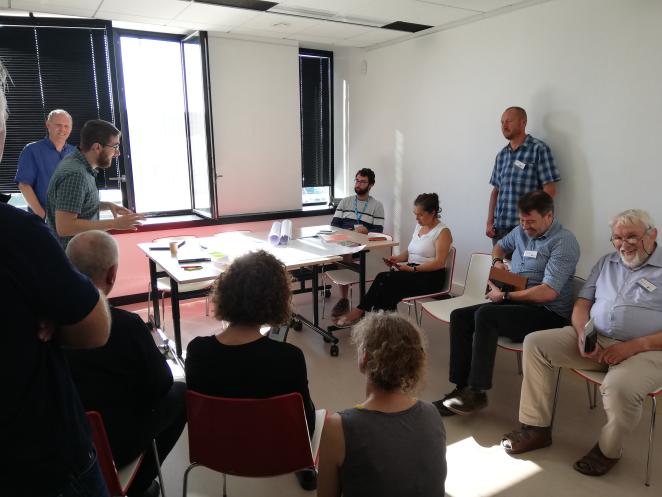
photo: Anna Vollmer
The main research of the DARKER SKY project will take place in eight demonstrator sites located in France, Germany and the Netherlands. At these sites light modifications will be installed and the effects of light pollution on biodiversity will be monitored during the upcoming three years. The plans and characteristics of each demonstrator site were presented which included ports and public areas in Brest, Lower Saxony, Holwerd, Hamburg and Lauwersoog.
Crucially, European, national, and local policies at intersection of light pollution and biodiversity play an important role within our project's framework. The Policy Screening working session was dedicated to exploring strategies for analysing these policies and guidelines. This was followed by a working session on Transnational Good Practice Exchange, where the agenda included study visits, desk research, and discussions with experts, networks, and policymakers.
Among other working sessions, during the Light Pollution Mapping Framework working session and the Ecological Effects Monitoring workshop the team discussed how to develop common methodology and monitoring protocols to measure light pollution and the effects of artificial light on diurnal/nocturnal biodiversity. The team eagerly discussed the selection of biodiversity indicator species to prioritize and the most suitable light pollution measurement tools and techniques.
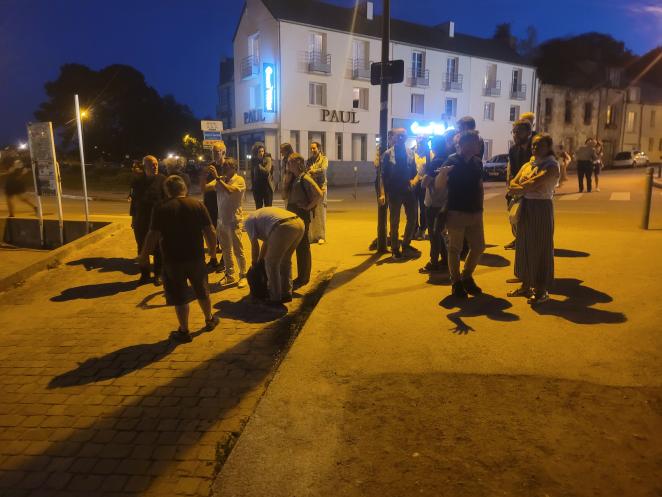
photo: Enora Morin
As the day turned to night, a visit to one of our demonstrator sites, the Moulin Blanc beach in Brest, allowed the partners to examine the present lighting conditions and lighting modification plans for this site. Preliminary light pollution measurements were also conducted.
After these two days filled with inspiring discussions and productive working sessions, our partners are looking forward to the upcoming three years. Together, we are committed to conducting extensive research, facilitating exchanges, and implementing strategies to reduce light pollution and enhance biodiversity!
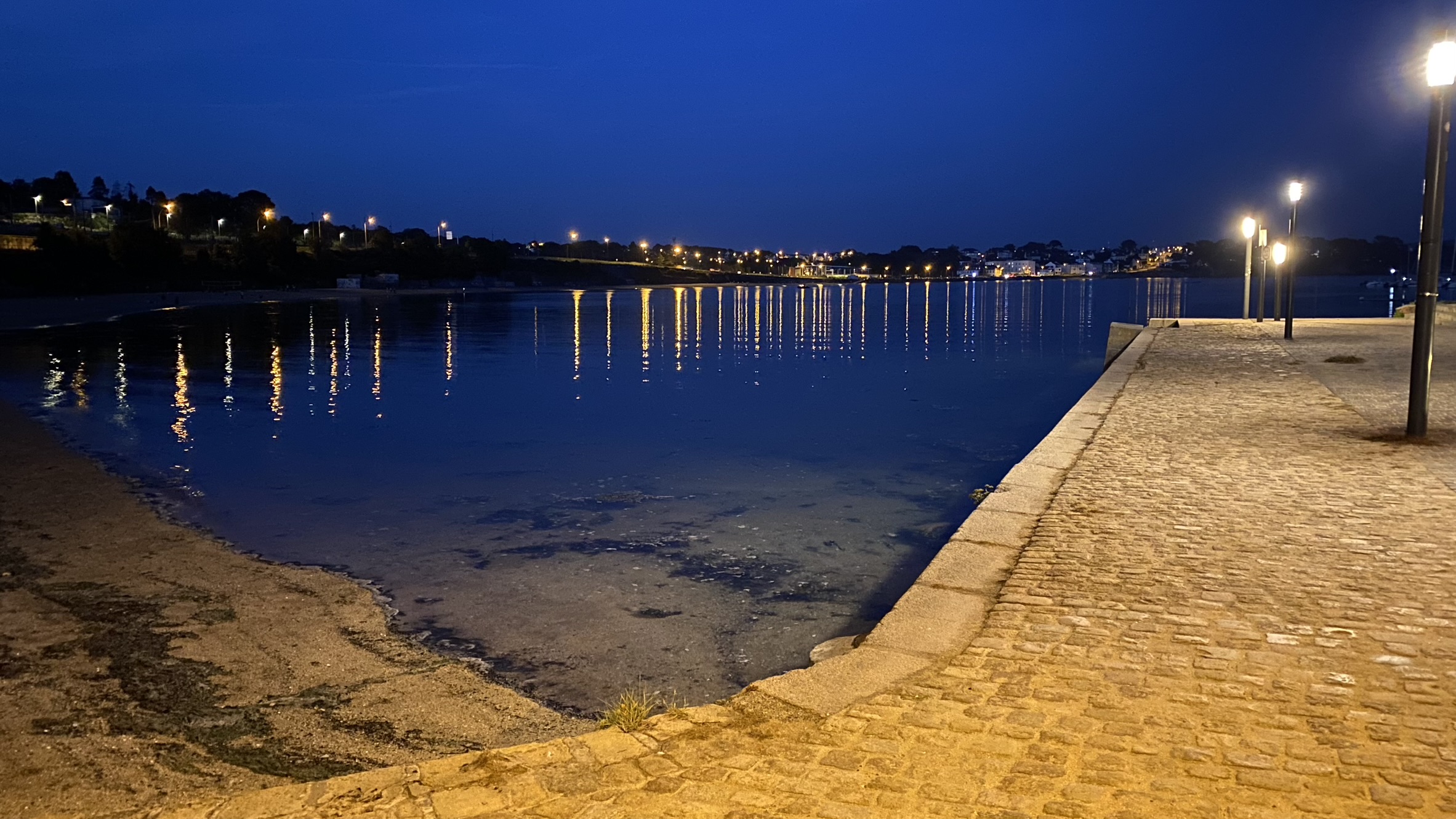
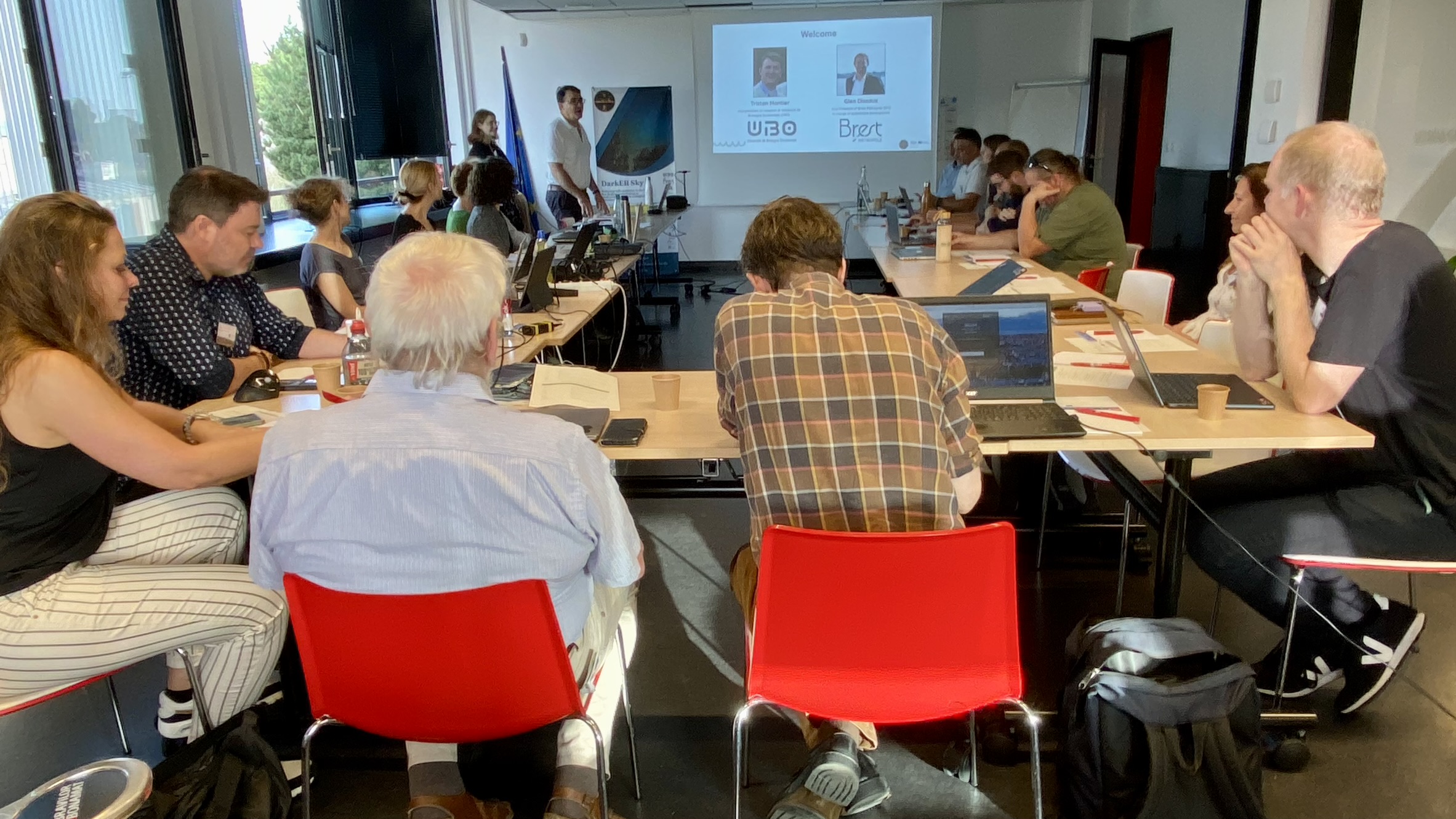
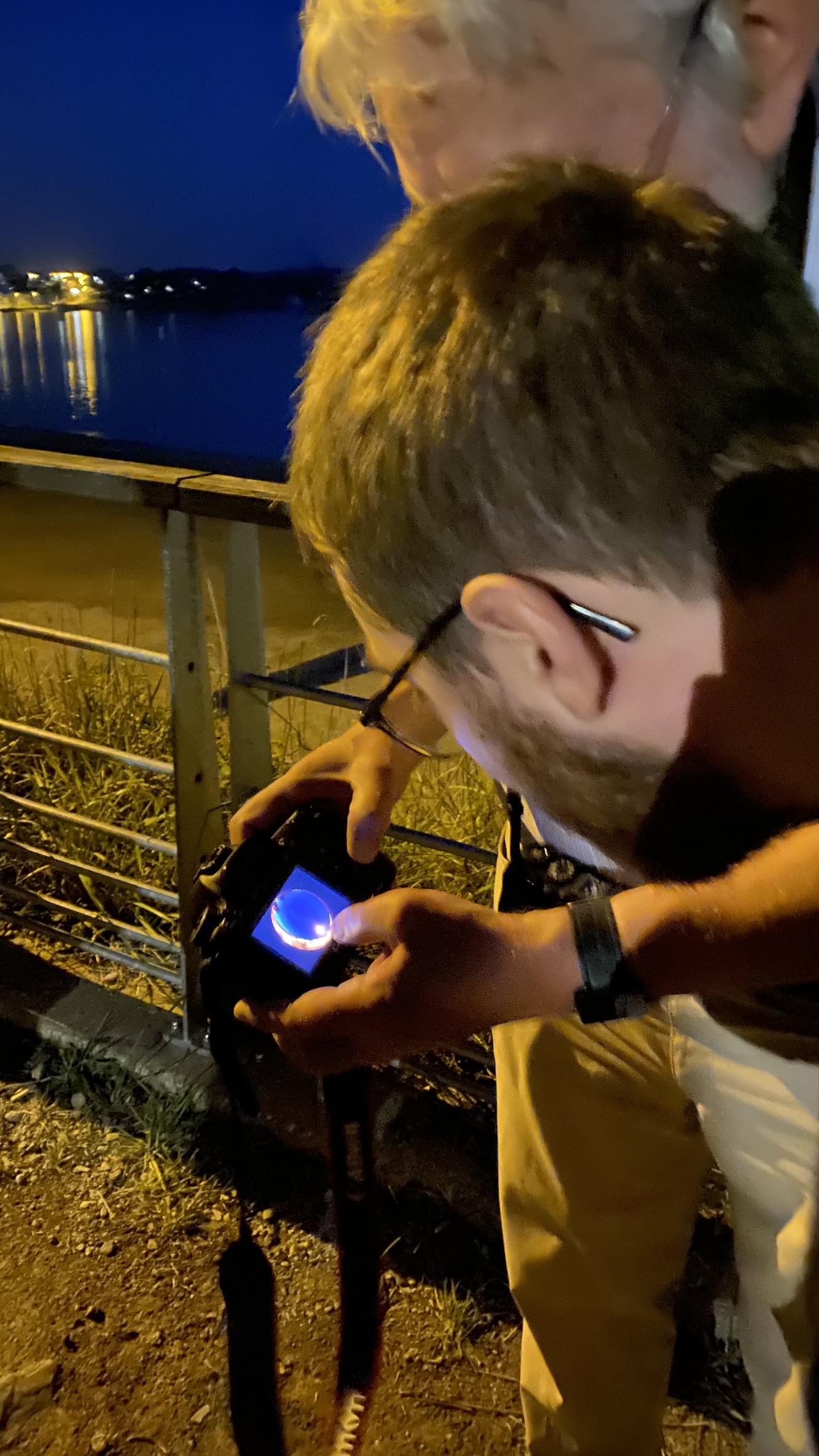

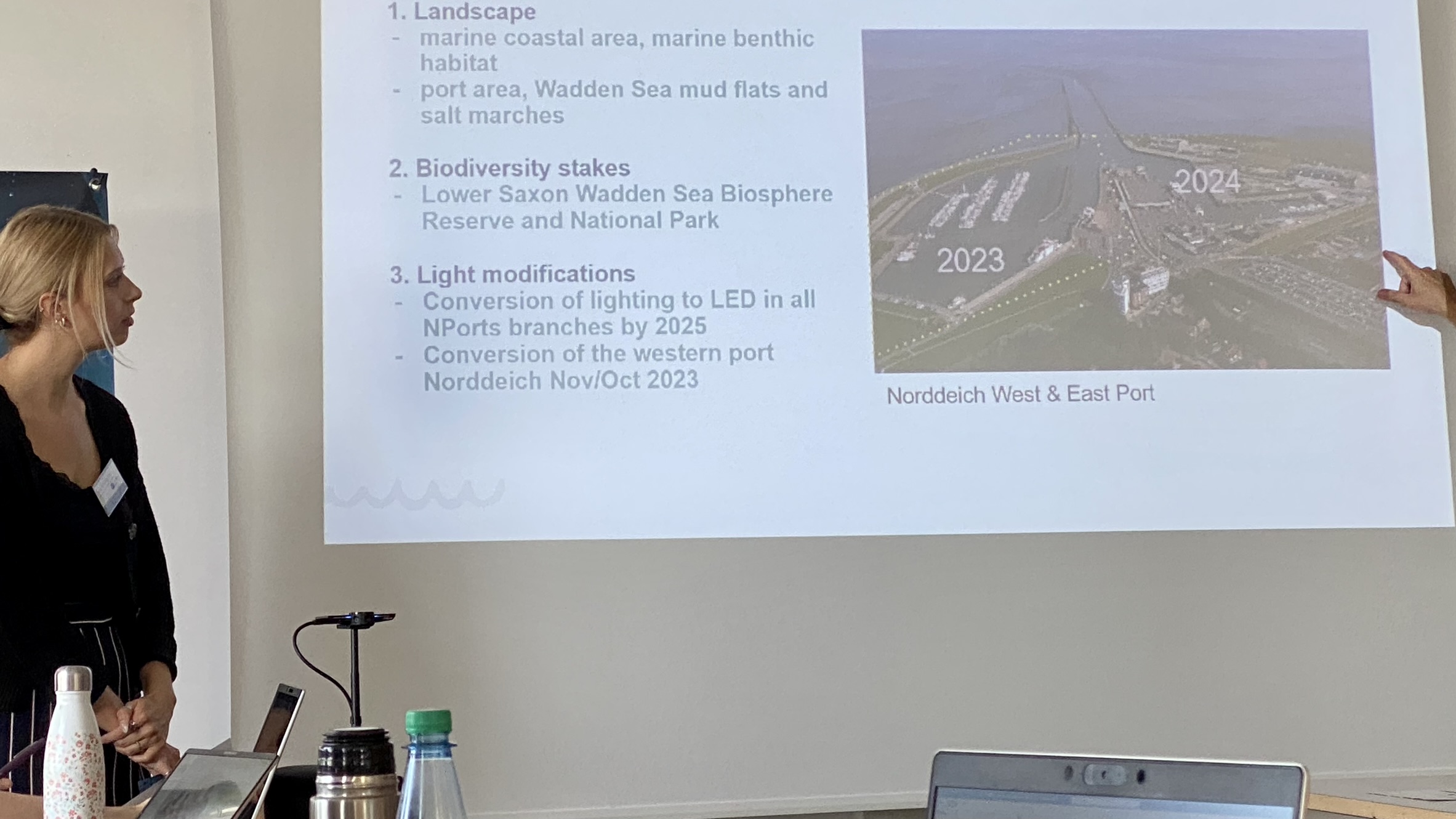
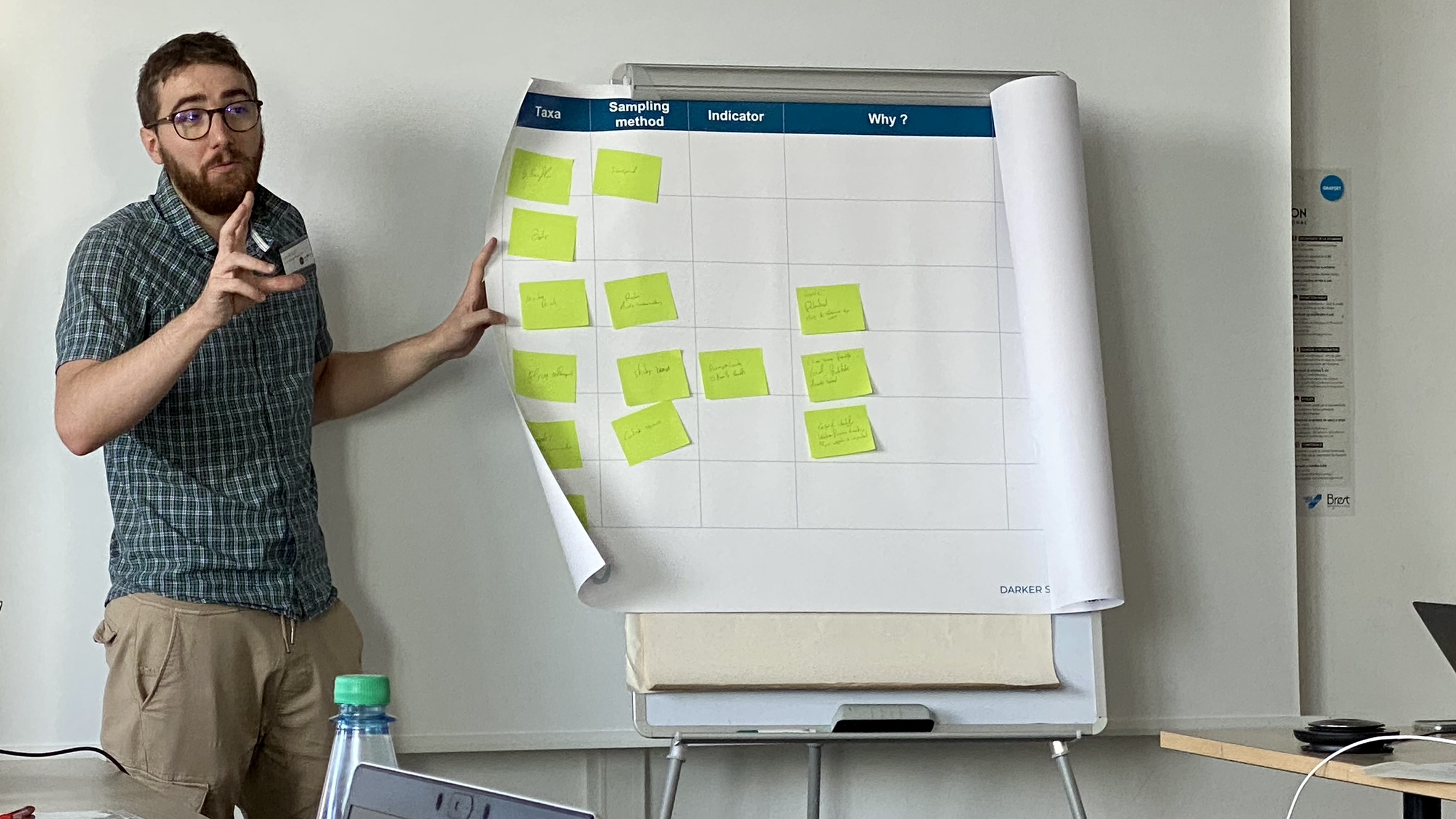
photos: Jan-Willem van Kruyssen